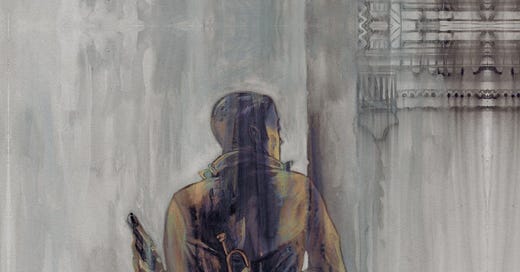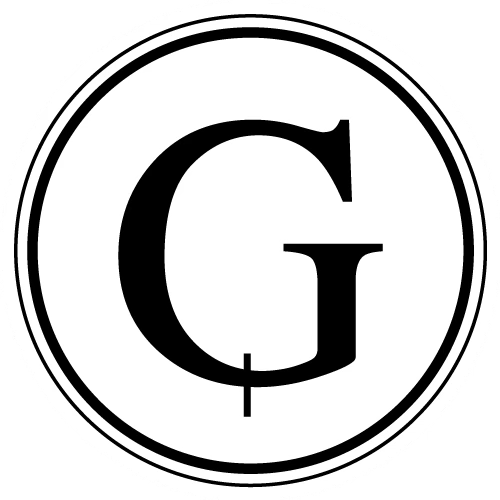What follows is Part 12 of Becoming P.T. Lyfantod
If you missed Part 1, start there:
We call them Faeries.
The Good Neighbors. The Fair Folk. Tuatha Dé Danann. Driven from their native land by the mortal sons of Mil Espáine, who came from across the sea.
The open spaces of Ireland are dotted with barrows112—burial mounds into which it is said the children of Danu113 long ago retreated, once their home above was lost to them. For centuries, this account was taken as gospel, but in recent years many of those mounds have been dug up. Excavated, catalogued, recorded. We found bones, treasure, and fragments of the lives of men long dead. What we did not find were the Aos sí.
And imagine if we had. The legends of our past, squatting in the dirt, banished from sunlight. Pallid, withered, and feral. What then to make of all the stories told of luxurious palaces and stately courts, of tea, of balls and parties that never end. The voyages of Bran114 and Saint Brendan115. Are they supposed to have sailed to isles in a sea of mud? What of Beltane? Midsummer? Samhain,116 when these fabled folk are known to cross over from the other side? Do we expect them to claw their way out of holes in the ground like conies? I think not.
But where are they, then? What to make of faerie rings and faerie forts and whitethorn trees, which every boy and girl are taught to treat with the same care and respect that they would the crucifix? Which even to this day when paving new roads we give a wide berth—at great expense—for fear of angering the fae who’s claimed it?
The fact is, all this time we’ve misunderstood. The barrows were never Faerie Home. They were doorways to it. There was no more chance of our finding them in those earthen heaps than there was of finding them crouching in the bushes or lying amongst the toadstools. The truth is simple. We mistook the path for the destination.
A baffling oversight, given how plainly it’s all spelled out in the Lebor Gabála Érenn.117 It was to Tír na nÓg—the Otherworld—that the Tuath Dé were driven by the Milesians, who may or may not be the ancestors of the modern Gaels. A proper reading of the ancient text suggests the Good Folk did not retreat to a world beneath our own, but one beside it. Not a measly puddle, confined to ditches and pits, but an ocean, wide and deep, flowing alongside the one we mistakenly call reality.
The Tuath Dé are here. They are across the sea. They are beside us. Behind us. Before us. They are but a step away, separated by a diaphanous barrier that we have forgotten how to cross.
Have they?
I felt a jolt reading those words, and a shiver ran through me that had nothing to do with the water seeping through the seat of my trousers. As I looked up from the book, a keening gust of wind swept through the park, rustling leaves and blowing hair into my face. Giant magical frogs were one thing. But invisible people were another, especially ones I couldn’t see or hear but might reach out and touch me whenever they wanted… People who weren’t really people at all. Faeries.
The idea caught and stuck like a barbed hook in a fish’s mouth. It explained everything. Mostly everything. How the old man always found me no matter where I went. How he disappeared as soon as I stopped looking. And of course he wore green. Not because he was a bloody frog. Because he was Irish.
“Hold on,” said Rudy.
“Hm?”
“You really remember all that? About the frogs, and the—the Toowath Day?”
“That’s right.”
“That’s mental.” He shook his head. “You said this happened in 1996. That’s like… twenty years ago!”
“So?”
“Nobody could remember all that twenty years later!”
“Well, you might be right. Except for three things.”
“What?”
“First, I’ve read those entries a lot more recently than 1996. In fact, I still have my copy of Old Magick. Second, back then, I went over those pages dozens, hundreds of times. I took that book wherever I went. It was my Bible. It meant everything to me.”
“But why?” said Coira. “It’s just a book, right?”
“Just a book! That’s good. You, my dear, have a lot to learn.”
“And?” Rudy said.
I frowned at him. “And what?”
“The third thing!”
“Oh. Right. And third, a bard has a memory like a steel trap.”
Back in the park, I was in something of a panic. The book—if I was interpreting it correctly—explained what the man in green was and in an abstract way how he moved about without being seen. What it didn’t explain was what he wanted with me. Or what he’d do if he believed I’d stolen his book.
And I started to wonder. What if he wasn’t alone? If there was one faerie, there might be two. Or ten thousand. They might be everywhere. Anywhere. Hidden under normal clothes. I racked my brain. Did anything else about him stand out as unusual? He had green eyes, but that wasn’t unheard of. I should’ve paid better attention to his ears. Were they pointy? Or was that elves? What was the difference between elves and faeries, anyway?
Not so far off, a man in a red sweater strolled past with his dog. He didn’t appear to be looking my way, but… And there—a pair of women, plump and silver-haired, sat on a park bench that was not quite facing my tree. One had a green shawl wrapped around her shoulders. Now that my eyes were open, I realized the park, which I’d somehow mistaken for empty, was full of people. People walking. People sitting. People doing suspiciously little. And at least half a dozen of them were wearing green in some capacity. Any one of them might be one of the…the Good Folk. Watching me. Or looking for the book. Or doing faerie things.
I swallowed.
Nearby, a crow alighted, cawing. I scrambled to my feet. Could faeries turn into birds? I thought they could, come to think of it. It sounded right.
“I’ve got to get indoors.”
I hoisted my bag under the scrutiny of the beady-eyed crow, slid the book surreptitiously under my jacket and started walking. I couldn’t go home. Not yet. I headed instead for the one place I thought I’d be able to figure out what to do next without being spied upon. The one place I’d had no intention of going, contrary to what I’d told my grandmother.
The library.









You have a nice flow to your writing. I liked it a lot.